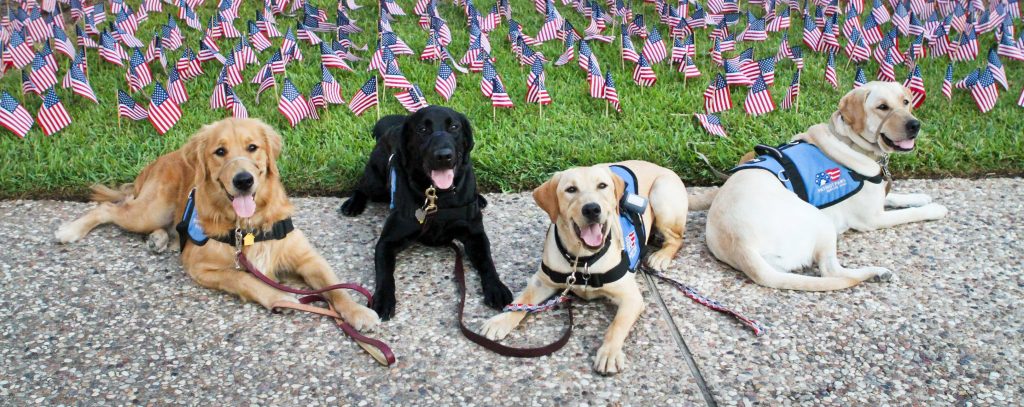Dog Tags: Shelby McMillin’s Story of Selfless Service
One liberal arts student’s passion for mental health advocacy causes schooling and selfless service to collide.

By Amber Francis ‘22

Shelby McMillin ’21 has trained service dogs with Patriot Paws Aggieland since she was a freshman. She now serves as the organization’s president.
Shelby McMillin ‘21, a psychology major at Texas A&M University’s College of Liberal Arts, has enjoyed taking part in leadership positions since middle school. But throughout her college years, she felt a special connection to one organization in particular.
Shaped by her desire to serve and passion for mental health advocacy, she felt an immediate connection to Patriot Paws of Aggieland, the Texas A&M branch of Patriot Paws, an organization that raises and trains service dogs to help veterans with post traumatic stress disorder (PTSD). Wanting to give it every ounce of time and effort possible, she initially served as the organization’s public relations coordinator before working her way up to her current role as president.
Even as head of the organization, she continues to train the dogs. She thanks her psychology classes for that, especially psychology of learning, which studies how the brain processes conditioning and effective teaching approaches. This ultimately helped her understand the best way to train dogs to serve the veterans who need them.
“Being in those classes has helped me apply methods that research has shown to be most effective when training, conditioning, and reinforcing behavior,” McMillin explained. “And to pay attention to what we need to focus on for both the dogs and the people.”
Though having an understanding of the mental health of veterans and service dogs can be extremely beneficial, it’s arguably just as beneficial if not more so to have an inward understanding of one’s own mental health, especially in the high-stress environment of college life.
“A lot of our members are a lot more introspective in the sense that they pay much more careful attention to their own mental health than most people normally would,” McMillin shared. “Because you’re so conscious of the health of the prospective veteran, you’re a lot more conscious of yourself in turn because the dogs pick up on that.”
McMillin’s focus on mental health isn’t limited to Patriot Paws, but is an ideal that she feels is reflected throughout the College of Liberal Arts, citing a warm and supportive environment where professors actually care about their students, rather than just assignments and due dates. She made special mention of senior psychology professor Arnold LeUnes, who even stated that he hoped to teach not just the material, but how to be a good human. LeUnes often dropped what he was doing in order to check on his students’ wellbeing, leaving a profound impact on McMillin and many others in the process.
“It’s pretty representative of most of the liberal arts classes I’ve taken, honestly. Every single professor I’ve had is very compassionate, very understanding,” She stated. “So many of them would just casually let us know that we were cared for, and that their doors were open to us. And they’d say it often. Now that I think about it, it’s impacted my life more than I’ve realized up until this point.”
The reinforcement of being aware that everyone around you is going through something, combined with a degree of tolerance and compassion, is a source of comfort to many who may be struggling or otherwise afraid to reach out for help.
“It’s like everyone’s rooting for you,” McMillin explained.
Though she asserts that her future plans aren’t set in stone, McMillin’s passion for advocacy for mental health and passion for the organization extends far beyond her undergraduate years. She hopes to use her degree to become a clinical psychologist as part of the Patriot Paws staff, assisting the organization in interviewing candidates and assessing their needs.
“Going forward, hopefully we continue to educate the public and break the stigma surrounding mental health,” McMillin said. “That simple acknowledgment is one step closer to making things better for so many people.”
